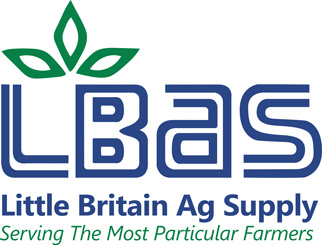In the world of agriculture, where the delicate balance of nature dictates the success of our harvests, understanding the intricacies of soil pH and its impact on crop health is paramount. Soil pH, the measure of soil acidity or alkalinity, plays a crucial role in determining nutrient availability and plant growth. Just as a house needs a sturdy foundation, a thriving farm requires the optimal soil pH level.
Imagine soil as a living ecosystem teeming with microorganisms, essential nutrients, and minerals. These elements work in harmony to support plant growth, but their effectiveness is greatly influenced by soil pH. When soil becomes too acidic, essential nutrients like phosphorus and calcium become bound to soil particles, making them unavailable to plants. This nutrient deficiency can lead to stunted growth, reduced yields, and increased susceptibility to diseases.
Enter lime, the unsung hero of agriculture. Lime, in its various forms, acts as a soil pH adjuster, neutralizing excess acidity and creating an environment conducive to plant growth. By applying lime, farmers can unlock the potential of their soil, allowing nutrients to become readily available for plant uptake.
The benefits of liming extend beyond nutrient availability. Liming improves the overall structure of the soil, enhancing its ability to retain moisture and air. This improved soil structure allows plant roots to penetrate and explore deeper into the soil, enhancing nutrient uptake and overall plant health.
Liming also enhances the effectiveness of fertilizers and herbicides. When soil is too acidic, fertilizers and herbicides can become less effective, wasting valuable resources and potentially harming the environment. Liming creates an optimal environment for these agricultural tools to work as intended, maximizing their benefits and minimizing their environmental impact.
As a responsible farmer, choosing the right type of lime and application method is crucial. Pelletized calcitic and dolomitic lime are suitable for spinner spreaders, while pulverized calcitic and dolomitic lime are ideal for drop spreaders. For large-scale farming operations, New Enterprise Stone & Lime Co., Inc (Martin’s Limestone) offers crop and pasture land spreading services, covering hundreds of acres with precision and efficiency. For smaller-scale operations or areas inaccessible to boom spreader trucks, alternative application methods are available.
In conclusion, soil pH and lime management are fundamental aspects of sustainable agriculture. By understanding the intricate relationship between soil pH, nutrient availability, and plant growth, farmers can harness the power of lime to unlock the full potential of their soil, leading to bountiful harvests and a thriving agricultural ecosystem.

